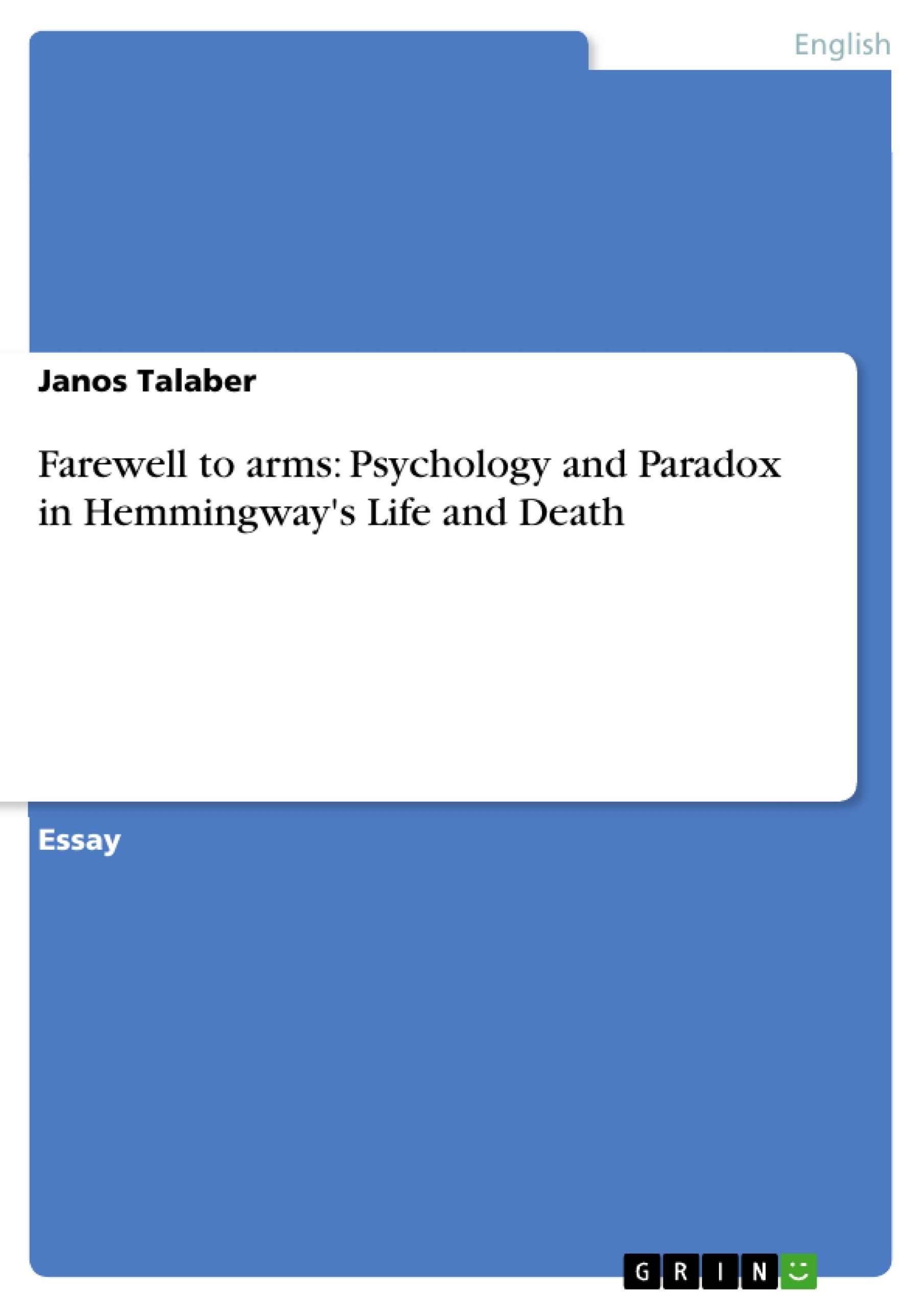One might find it strange that we are planning to write about Hemmingway and his obsession with guns. However, we personally believe that everything in connection with great American as well as British writers might be terrible interesting and relevant. We have been in touch with American English for more than 20 years now, and have carried out some research in field of US language and civilization. Thus we find it very interesting to deal with one of the greatest writers in American literature history. He is not only one among the greatest idols, but he is also one of the most mysterious ones. Many people (Fiedler, 1975) believe that all his life and even death was of mystery. Some others even go so far that they suppose he did not kill himself, and it was a mere accident while he was cleaning his shot gun. In our small essay we would like to unveil this mystery, or at least we would intend to find solutions for many unanswered questions. Is his small piece of work a forerunner of something that has never been properly answered? Could we assume that our aim is only to summon the ideas, facts and files around this phenomenon, and we would gradually set up a diagnosis for Hemmingway’s status of mind? What roles did weapons have in his life? He said farewell to arms several times (and also he was expressing his crave for peace all in his life), still he had a wide collection of shotguns and he was obsessed with using them during hunting “expeditions”. Was he then a genius or a mentally disabled person? We might state that a genius is usually disabled as well. However, can we prove this throughout a short essay? At least we would try it. So dear reader, stay tuned!
Inhaltsverzeichnis (Table of Contents)
- I. Introduction
- II. Hemingway's life and his first meeting with guns
- III. "Hello to arms, farewell to war"
Zielsetzung und Themenschwerpunkte (Objectives and Key Themes)
This essay aims to investigate Ernest Hemingway's fascination with guns and explore the psychological implications of this obsession. The essay seeks to understand the roots of Hemingway's complex relationship with firearms and analyze its impact on his life and work.
- Hemingway's early childhood and its influence on his personality
- The role of masculinity and heterosexuality in Hemingway's life
- Hemingway's relationship with his mother and its impact on his psychology
- The influence of war and death on Hemingway's worldview
- Hemingway's fascination with guns and its connection to hunting, masculinity, and death
Zusammenfassung der Kapitel (Chapter Summaries)
The first chapter introduces the topic of Hemingway's relationship with guns and presents the essay's objective to explore the underlying psychological factors. The second chapter focuses on Hemingway's early life, highlighting his relationship with his parents, his childhood experiences, and his initial encounters with guns. The third chapter examines Hemingway's experience during World War I, discussing his time as an ambulance driver and his exposure to death and violence.
Schlüsselwörter (Keywords)
Key terms and concepts explored in this essay include: Ernest Hemingway, guns, psychology, masculinity, heterosexuality, childhood, war, death, hunting, obsession, and trauma.
Frequently Asked Questions
What is the main focus of this essay on Ernest Hemingway?
The essay investigates Hemingway's fascination with guns and explores the psychological motives behind this lifelong obsession.
How did Hemingway's childhood influence his relationship with firearms?
The text explores early encounters with guns and the complex psychological influence of his parents, particularly his mother, on his developing personality.
What role does masculinity play in Hemingway's obsession?
The essay connects his use of weapons and hunting expeditions to his need to perform traditional masculinity and heterosexuality.
Does the essay address Hemingway's death?
Yes, it discusses the mystery surrounding his suicide (or accidental death) and how weapons were present until the very end of his life.
How did World War I affect Hemingway's worldview?
His experience as an ambulance driver exposed him to violence and death, further deepening his psychological connection to trauma and arms.
- Quote paper
- Janos Talaber (Author), 2010, Farewell to arms: Psychology and Paradox in Hemmingway's Life and Death, Munich, GRIN Verlag, https://www.grin.com/document/163128



